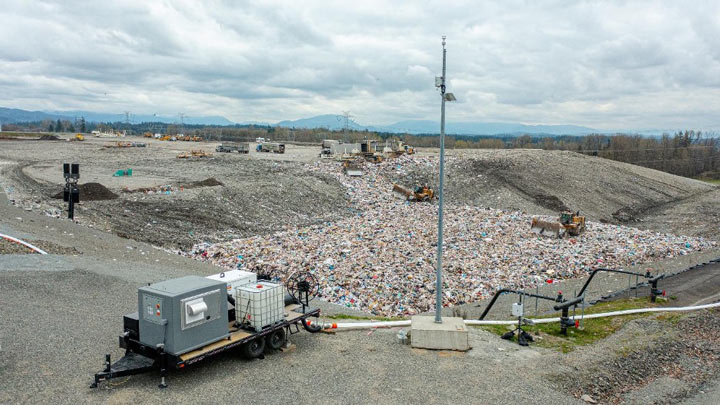Odor management with Innovative Technologies - Game Changer for the Waste Industry
April 7, 2023

The urban population is constantly expanding, bringing communities closer to waste management facilities like landfills. With this increased proximity comes a heightened sense of social responsibility and pressure from both local communities and regulators to minimize the impact of these operations. To meet these challenges, solid waste facilities are embracing technology to optimize their operations while still upholding their reputations. By tapping into advanced insights, these operators can make informed decisions that benefit both the environment and their communities.
As cities and communities continue to expand together with growing regulatory pressure, odor management has become a hot topic in waste management. Facilities are facing increased pressure to run operations sustainably and responsibly, especially when it comes to offensive odors from landfills. With the help of environmental intelligence and state of the art odor control systems, waste management operations can now take proactive measures to mitigate odor emissions, identify sources of site-generated emissions, and plan for potential weather risks. By staying ahead of the game, these facilities can maintain their social license to operate and continue serving their communities in a responsible manner.
Neutralization at the source with odor control systems
The proximity of the odor control system to the source has a significant impact on efficacy as odor neutralization through vapor application is predicated on contact between the neutralizer and the odor molecules coming off the working face. Simply put – the closer you can get to the odorous compounds, the better success you can have neutralizing them before they escape the landfill and reach neighboring communities. This is why a mobile vapor system capable of moving with the working face is critical for achieving true odor mitigation at a landfill. It is a simple concept that requires complex technology to accomplish.
Using Environmental intelligence to plan operations with confidence
The waste management industry is undergoing a major transformation through the power of environmental intelligence technology. Cutting-edge AI-driven algorithms are revolutionizing the way waste operators make decisions by quickly turning complex data into actionable insights.
Using Environmental Intelligence, solid waste operators can now forecast impact to inform decisions of when, where and to what extent odor controls need to be applied. With this groundbreaking technology, solid waste facility managers have a comprehensive view of their operations, enabling them to make informed decisions about odor control strategies, equipment, and overall operational accuracy. This new era of waste management is an exciting one that promises to bring a new level of efficiency and sustainability to the industry.
An opportunity for landfills to use technology for more effective odor mitigation
By harnessing the power of modern technology to conduct more effective odor mitigation, waste management sites have an opportunity to reduce operational costs, increase efficiency and effectiveness of their operations, and improve environmental health for their surrounding communities. Environmental intelligence solutions offer a new way to understand data related to odors and emissions so that waste management professionals can make better informed decisions and respond to community complaints.
To learn more, join in on the panel discussion titled, “Ooh That Smell”; Landfill Odor Monitoring, Detection and Mitigation” at SOAR in Atlanta, Georgia on Wednesday, April 19 at 2 PM. Our panel experts will be discussing the need to establish effective odor monitoring protocol and response plans, and how productive engagement with the community can lead to better relationships and successful odor control: “Ooh That Smell”; Landfill Odor Monitoring, Detection and Mitigation







Leave a comment